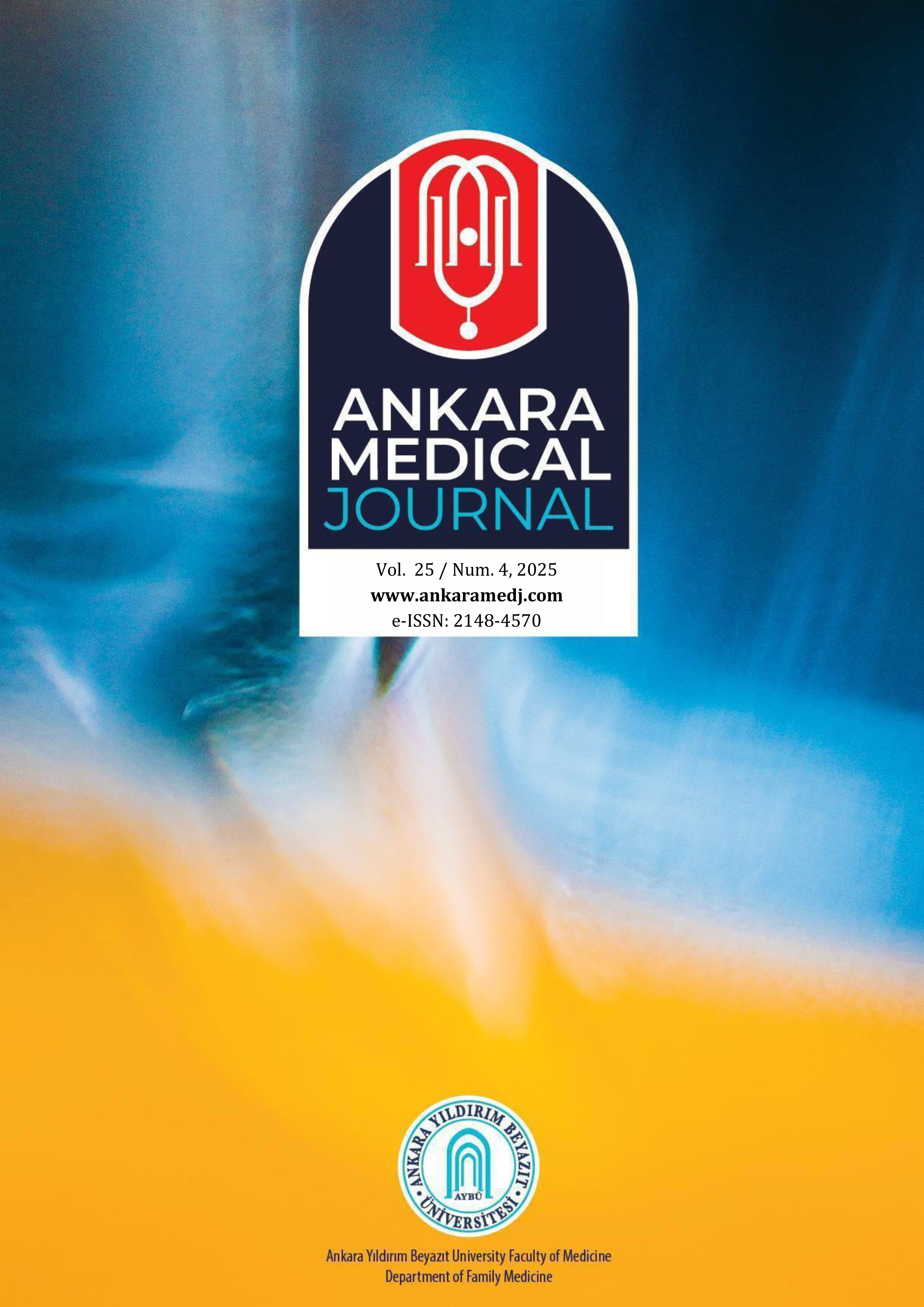Toplumsal Cinsiyet Farkındalık Eğitiminin İşçi Kadınların Toplumsal Cinsiyet Rol Tutumlarına Etkisi
ilknur Aydın Avci1, Özge ÖZ YILDIRIM1, Dilek ÇELİK EREN1, SENEM GURKAN21Ondokuz Mayıs Üniversitesi, Sağlık Bilimleri Fakültesi, Halk Sağlığı Hemşireliği Anabilim Dalı, Samsun, Türkiye2Ondokuz Mayıs Üniversitesi, Sosyal Bilimler Enstitüsü, Samsun, Türkiye
GİRİŞ ve AMAÇ: Bu çalışma işçi kadınlara verilen toplumsal cinsiyet farkındalık eğitiminin, işçilerin toplumsal cinsiyet rollerine ilişkin tutumları üzerine etkisini değerlendirmek amacıyla yapılmıştır.
YÖNTEM ve GEREÇLER: Bu araştırma yarı deneysel araştırma tasarımlarından tek grupta ön test son test deneme modeline göre yapılmıştır. Çalışmaya bir fabrikada çalışan, araştırmaya katılmaya gönüllü olan, girişimi tamamlayan 166 kadın işçi dahil edilmiştir. Çalışmada işçilere toplumsal cinsiyet farkındalığına ilişkin 4 oturumdan oluşan 8 saatlik bir eğitim verilmiştir. Eğitim öncesi ön test olarak işçilere sosyo-demografik özelliklerini inceleyen soru formu ve toplumsal cinsiyet rolleri tutum ölçeği uygulanmıştır. Eğitiminin sonunda son test yapılarak toplumsal cinsiyet tutumu rolleri üzerindeki değişiklik belirlenmiştir. Verilerin değerlendirilmesinde tanımlayıcı istatistikler, Paired-t, independent-t ve ki-kare testi uygulanmıştır. Araştırmaya başlamadan önce etik kuruldan ve ilgili fabrika yönetiminden yazılı izin, araştırma kapsamındaki işçilerden sözel onam alınmıştır.
BULGULAR: Eğitim durumu lise olan, orta ekonomik düzey sahip olan ve ilçede yaşayan işçiler kadın olma ile ilgili daha fazla sorun yaşamaktadırlar. İşçi kadınların Toplumsal cinsiyet rolleri tutum ölçeği toplam puanlarında eğitim sonrasında (155,45±17,48) eğitim öncesine (149,72±19,54) göre artış belirlenmiş, aralarındaki istatistiki olarak anlamlı bulunmuştur (p=0,006).
TARTIŞMA ve SONUÇ: Bu çalışma ile işçi kadınlara toplumsal cinsiyet rolleri tutumlarını değiştirmek amacıyla verilen eğitim sonunda işçilerin toplumsal cinsiyet rolleri tutumları ölçeği toplam puanı, Kadın Cinsiyet Rolü ve Geleneksel Cinsiyet Rolü alt boyutlarında puan artışı meydana gelmiştir.
Anahtar Kelimeler: Toplumsal cinsiyet, toplumsal cinsiyet rolleri, eğitim programı.
The impact of gender awareness training on gender role attitudes of working women
ilknur Aydın Avci1, Özge ÖZ YILDIRIM1, Dilek ÇELİK EREN1, SENEM GURKAN21Ondokuz Mayıs University, Health Science Faculty, Public Health Nursing Department, Samsun,turkey2Ondokuz Mayıs University, Social Sciences Institute,samsun,turkey
INTRODUCTION: This study was conducted in order to assess the impact of Gender Awareness Training on gender role attitudes of women workers.
METHODS: The research was conducted with a pre-test post-test model in a non-randomized single group with a quasi-experimental research design. The participants of the study were 166 female workers who work in a factory. During the research, the workers were given an 8-hour training on gender awareness in 4 sessions. Before the training, a questionnaire form investigating the socio-demographic characteristics of workers and the Gender Roles Attitude Scale (GRAS) were applied to the workers as a pre-test. After training, the change in gender role attitudes was identified by means of post-test. Descriptive statistics, independent-t, and chi-square test, Anova, and Paired t-test were used for analyzing the data. Before starting the research, permission from the ethical committee and factory management was taken.
RESULTS: The women whose education level was high school, whose economic condition was middle, and who lived in the district have more problems for being female. The total scores of the participants from the Gender Roles Attitude Scale have increased from (155.45±17.48) to (149.72±19.54) as before the training program and after the training program(p=0.006).
DISCUSSION AND CONCLUSION: At the end of the training, it was found out that there has been an increase in womens total gender role attitude scores, in the sub-dimensions such as female gender role attitude and traditional gender role attitude.
Keywords: Gender, gender role, training programs.
Makale Dili: İngilizce
(1144 kere indirildi)





